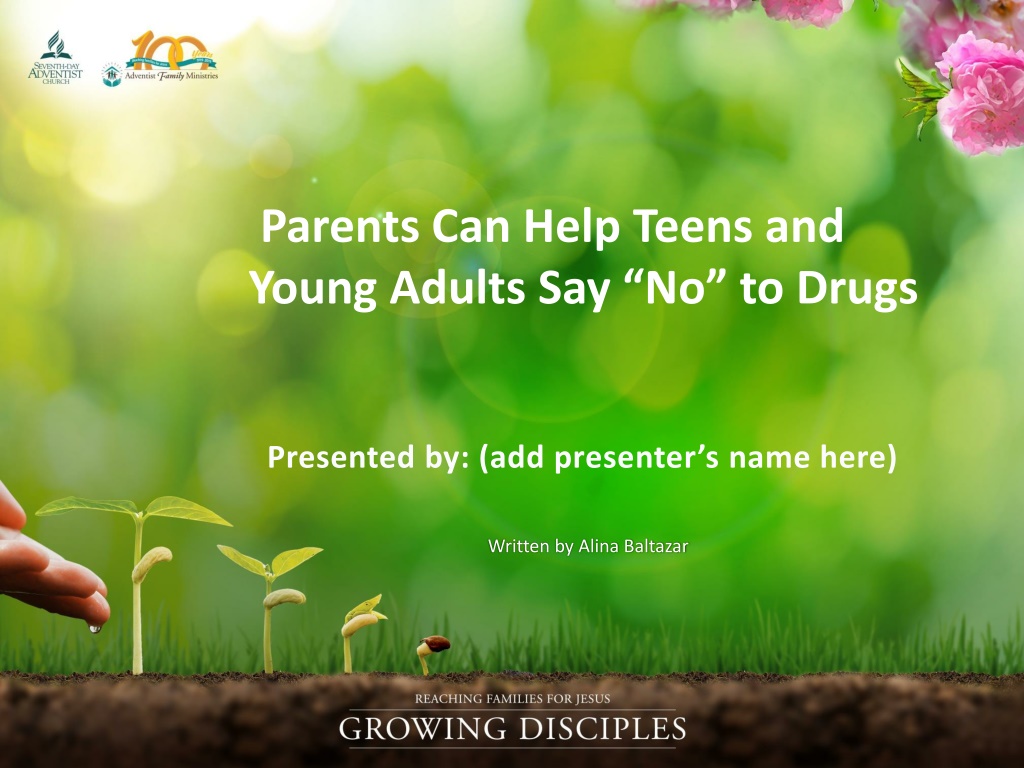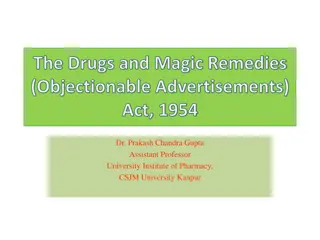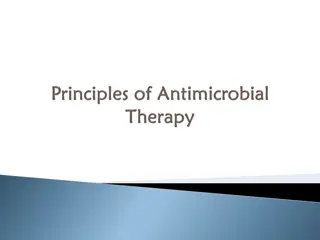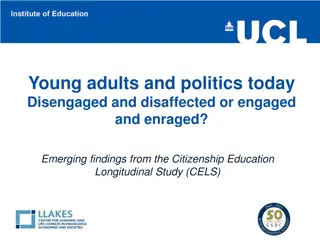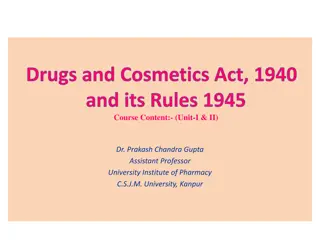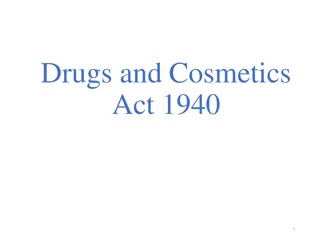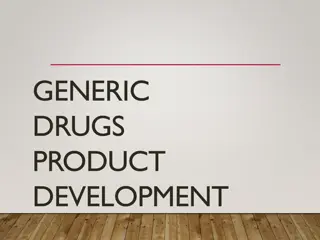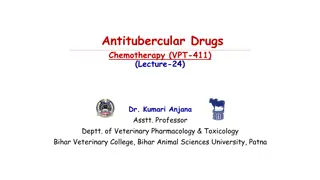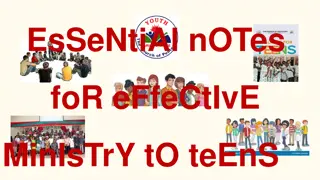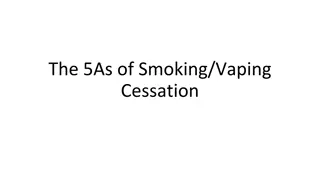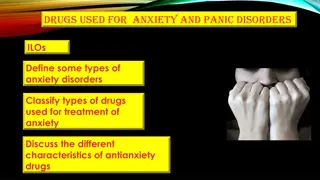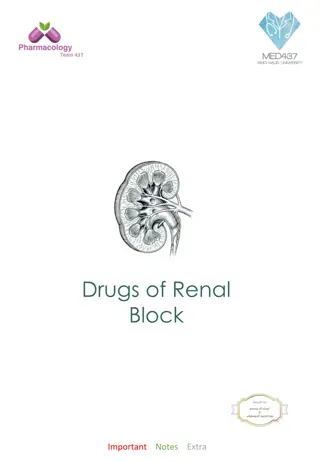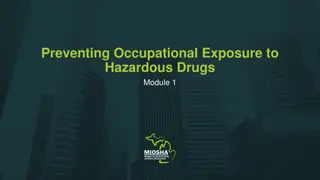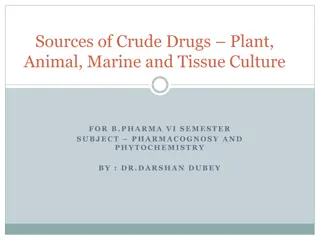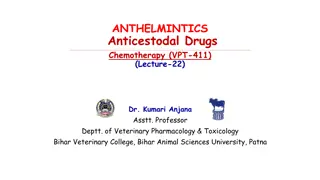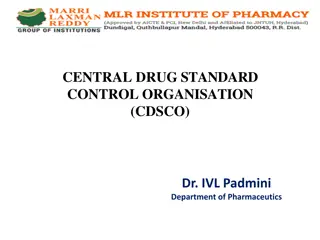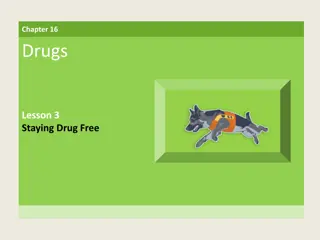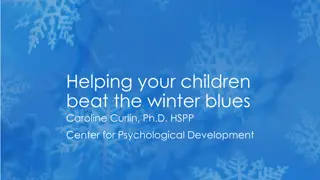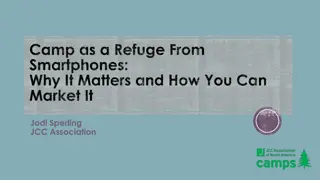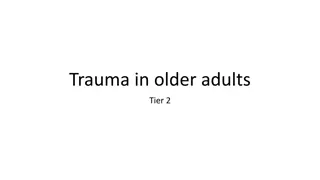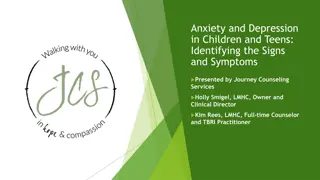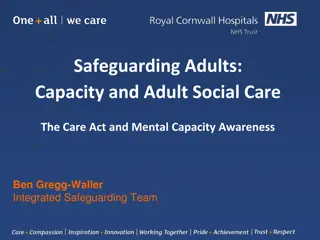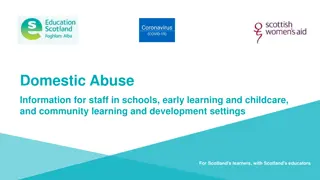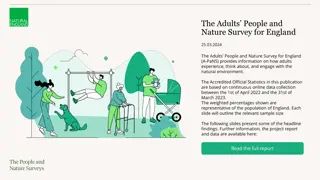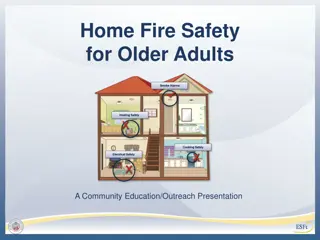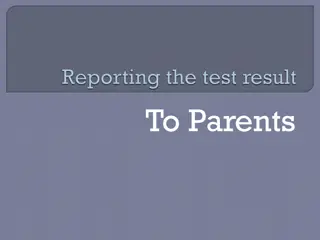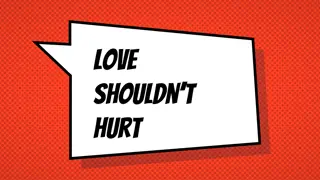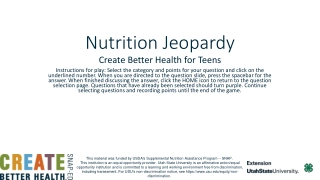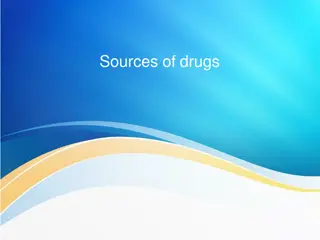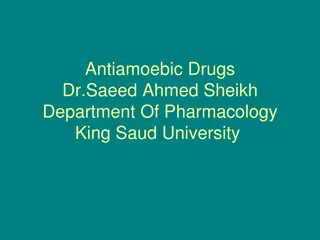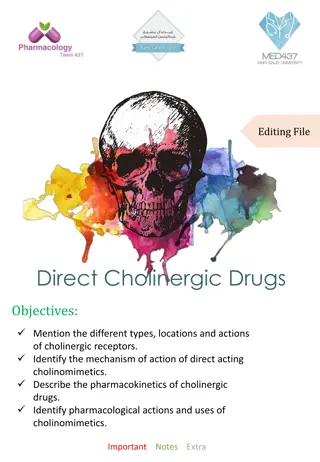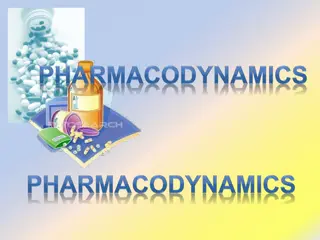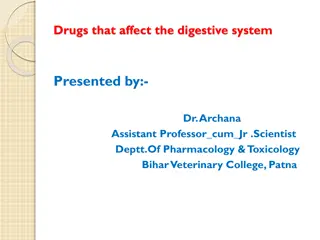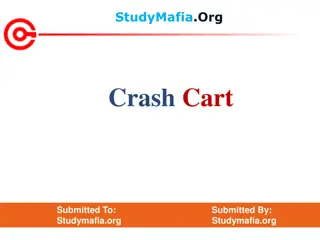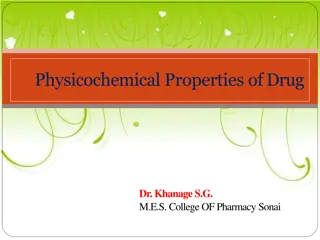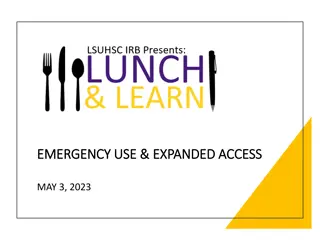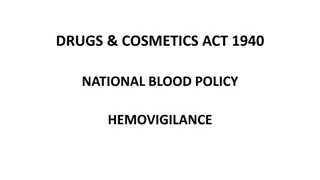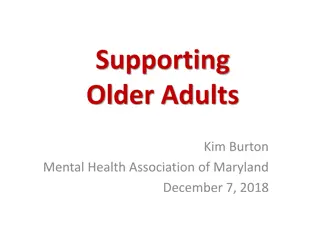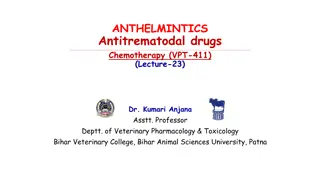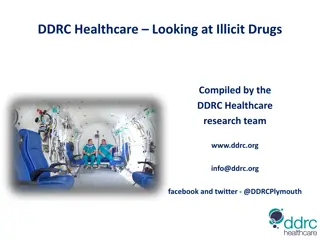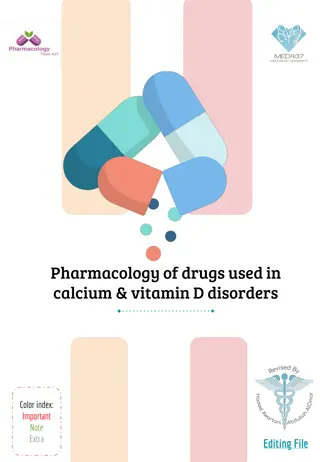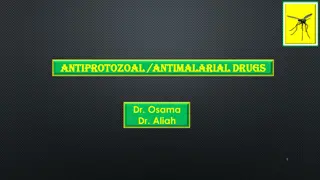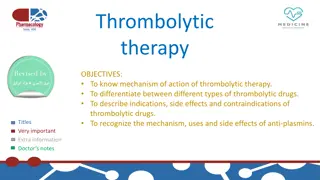Parents Can Help Teens and Young Adults Say No to Drugs
Normalization of substance use, consequences of substance abuse, adolescent development vulnerabilities, parent-child attachment significance, and the need for parental guidance to prevent substance abuse amongst teens and young adults are discussed.
Download Presentation

Please find below an Image/Link to download the presentation.
The content on the website is provided AS IS for your information and personal use only. It may not be sold, licensed, or shared on other websites without obtaining consent from the author. Download presentation by click this link. If you encounter any issues during the download, it is possible that the publisher has removed the file from their server.
E N D
Presentation Transcript
Parents Can Help Teens and Young Adults Say No to Drugs Presented by: (add presenter s name here) Written by Alina Baltazar
Normalization of Substance Use Illegal drug and alcohol use is a statistically normative process during late adolescence and young adulthood 50% of high school seniors in the U.S. have used an illicit drug once in their life (marijuana the most common in the U.S. and world wide) (Monitoring the Future Survey, 2013a) 80% of college students in the U.S. have used alcohol in their lifetime (Monitoring the Future Report, 2013b) Parents Can Help Teens and Young Adults Say No to Drugs
Consequences of Substance Use Recreational use there can be adverse health effects (even death) from one time or occasional use and impaired judgement risky behaviors (driving while intoxicated, unsafe sex) Prolonged substance abuse linked to lung cancer, heart disease, liver disease, and addiction Addiction substance becomes most important thing causing problems at school, work, and with relationships. Hard to quit, even as consequences pile up. National Institute on Drug Abuse (2016) Parents Can Help Teens and Young Adults Say No to Drugs
Adolescent Development Teens especially vulnerable to substance use consequences. A time of growth and change Brain still developing until mid-20s Last area to develop is executive functioning Focused on pleasure and overestimate their ability to handle consequences. Earlier youth start abusing drugs, more likely to get addicted and suffer long-term consequences Stunts emotional growth What can parents do? National Institute on Drug Abuse (2016) Parents Can Help Teens and Young Adults Say No to Drugs
Parent/Child Attachment Bonding between parent and child starts at the very beginning Trust vs. Mistrust (Erickson, 1950) Attachment is associated with the expression and recognition of emotions as well as interpersonal functioning (Thorberg & Lyvers, 2010). Research has reported emotional regulation difficulties in substance use disorders and addiction has been considered an attachment disorder (Thorberg & Lyvers, 2010). The bond motivates the child to cooperate with their parent in areas of discipline Parents Can Help Teens and Young Adults Say No to Drugs
The Need For Parental Guidance Proverbs 22:6 ESV Train up a child in the way he should go; even when he is old he will not depart from it. Ephesians 6:4 ESV Fathers, do not provoke your children to anger, but bring them up in the discipline and instruction of the Lord. Parents Can Help Teens and Young Adults Say No to Drugs
Role Modeling If parents, older siblings, or even grandparents use substances, youth are more likely to use (Cubbins and Klepinger, 2007) In a study of Christian college students, using focus groups, it was reported, If my parents didn t use, I guess I won t either. (Baltazar, 2015) When family members have used, having an honest conversation helps, especially regarding consequences (Baltazar, 2015) Parents Can Help Teens and Young Adults Say No to Drugs
The Role of Siblings Siblings offer one of the first and most important peer relationships in an individual's life. (Heppner, 2014). Siblings' bonds depend upon their culture. In some cultures siblings may have a close relationship, in other cultures it is not as important for a family unit. (Heppner, 2014). According to the Harvard Study of Adult Development, the longer we can sustain close sibling relationships in adulthood, the more it can benefit and protect us emotionally. Parents Can Help Teens and Young Adults Say No to Drugs
Extended Families In some cultures, the role of the extended family is very important. Grandparents and other family members such as aunts and uncles play a significant role in both a family s economic and social function. Grandparent substance using norms were one of the strongest predictors of intention to use substances, in a population of American Indian youth (Martinez, Ayers, Kulis, & Brown, 2015) Parents Can Help Teens and Young Adults Say No to Drugs
Religious Upbringing Parents can have an indirect influence by encouraging religious development. Youth raised in a home with a religious affiliation had lower rates of drug use (Cubbins and Klepinger, 2007) Influences choice of positive peers Instills values In a survey of Christian college students (from an alcohol abstinent religion), the statement God wants me to take care of my body by avoiding alcohol and drugs , explained 25% of variance in last year alcohol use (Baltazar, 2014) Parents Can Help Teens and Young Adults Say No to Drugs
Ways Parents Influence Religious Development Start when they are young (bonding) Role modeling Participation in religious communities and communities Family worship Encourage individual religious practices in children Open dialogue Service to others Habenicht (1994) Parents Can Help Teens and Young Adults Say No to Drugs
Parents Laying the Foundation Upon all parents there rests the obligation of giving physical, mental, and spiritual instruction. In the home, a child is to learn the lessons that are to guide him/her throughout life lessons of respect, obedience, reverence, and self- control. E.G. White, Child Guidance Parents Can Help Teens and Young Adults Say No to Drugs
Monitoring/Supervision Monitoring is the parent's awareness of where the child is, their activities when they are out, and communication of these concerns to the child. The National Survey on Drug Abuse of 2008 reports parents who monitor their children s behavior and help with their homework decrease illicit drug use by about 50%. Mother not knowing how I spend my spare time related to greater regular alcohol use among Christian college students (Baltazar, 2015) Rules should be clearly stated, consistently enforced, and punishment reasonable, swift, and sure Parents Can Help Teens and Young Adults Say No to Drugs
Parental Involvement/Conflict Positive involvement is the parent's active participation in the child's life when it comes to activities and school work but not over involvement Parental involvement has been found to decrease substance use in adolescents and college age young adults. In a study of adolescents living in rural Idaho, USA, answering, If I had a personal problem I could ask my mom or dad for help, was statistically related to lower substance use (Baltazar, et al., 2012) Family conflict was significantly associated with an increased risk of substance use disorders (Skeer, et al., 2009) Parents Can Help Teens and Young Adults Say No to Drugs
Clear Communication Communicate clear expectations re: substance use The only statistically significant parental influence on adolescent alcohol use in one study (Miller-Day, 2010). In survey of Christian college students, feeling comfortable talking to mother about drugs and alcohol decreased regular alcohol use by 25% (Baltazar, 2015). From qualitative study of Christian college students, I think it comes down to, when parents give good reasons why we shouldn t be doing it, not just enforcing a bunch of rules that don t have any substance or background to them, so, actually having rationale for the rules, or the things that parents try to implement to their kids. quote from a participant Parents Can Help Teens and Young Adults Say No to Drugs
Parenting Styles AUTHORITATIVE HIGH AUTHORITARIAN Nurturing, affectionate Strict, inflexible Sets boundaries C High expectations Open communication O Tiger mom HIGH W A R M T H N W A R M T H LOW PERMISSIVE T UNINVOLVED Nurturing, affectionate R Emotionally detached Few or inconsistent boundaries O Self-absorbed Takes the role of friend L Inconsistent or no boundaries LOW Parents Can Help Teens and Young Adults Say No to Drugs
Parenting Style and Teen Substance Use Authoritative parents usually grow up to be independent, socially successful, and respectful of authority Permissive parenting, at adolescence, follow easily into peer pressure of drug and alcohol abuse Authoritarian parenting adolescents will give in to peer pressure in order to gain positive validation, even if the adolescent is fully aware of the consequence Wood et al., 2004 and American Academy of Pediatrics Parents Can Help Teens and Young Adults Say No to Drugs
Family Dinners Traditionally family meals have been a part of all human cultures Research consistently shows that having 4 or more family dinners per week significantly relates to: Lower rates of substance abuse Lower rates of sexual activity Lower rates of violence and suicide ideation Lower rates of victimization Higher rates of safety behavior Lower rates of obesity Matthews et al., 2012 Parents Can Help Teens and Young Adults Say No to Drugs
How Family Dinners Work Faith Building Prayer/Grace Role Modeling Monitoring Communication Involvement Only works if the experience is pleasant! Parents Can Help Teens and Young Adults Say No to Drugs
International Perspective Dutch and Norwegian parents feel it is their responsibility to be a good example and set rules regarding substance use(van der Sar, et al., 2014). Among rural African American adolescents having family members who did not use substances, being raised by parents, spending afternoons with parents after school, having parents who talk to youth about dangers of substance use, and having parents who disapprove of child using were considered protective factors (Myers, 2013). In a study of Mexican-American adolescents, having family obligation values is associated with less substance use (Telzer, et al., 2014). Parents Can Help Teens and Young Adults Say No to Drugs
Family Structure 40% of children will live in a home without two parents Because of high divorce rates and children born out of wedlock Higher rates of academic problems, more likely to become sexually active, commit illegal acts, and use illegal drugs at young ages Probably due to disrupted parent/child bonding and overwhelmed single parents - difficulties with communication, involvement, and supervision Family disruption particularly harmful during adolescent years Parents Can Help Teens and Young Adults Say No to Drugs
Hope for Single Parents When parents separate, children still need exactly what they needed before a secure emotional base, routine, protection, encouragement to learn, and the support of a trusting, loving parent. Successful single-parenting tips: Make time for one on one time with their children Show you are interested in the lives of their children and their exhibited behavior and attitudes Make good use of family networks and mentoring programs Have a positive co-parenting relationship Parents Can Help Teens and Young Adults Say No to Drugs
Blended Families According to the 2000 census 67% of families are blended There are many types of family that exists in today s society, each important to the upbringing of any children. Successful blended family tips: Give it time 4 years on average Build relationships Be flexible with roles Start new traditions Braithwaite, Baxter, & Harper (1998) Parents Can Help Teens and Young Adults Say No to Drugs
By making eye-contact, getting down to your child's level, offering a touch, or using a tone of your voice that conveys a desire to genuinely connect, you disarm yourself. You make it possible to reach your child more deeply and truly move forward together. Hilary Flower, Adventures In Gentle Discipline Parents Can Help Teens and Young Adults Say No to Drugs
Mental Illness and Substance Use These parenting strategies are also helpful in supporting good mental health. Strong genetic component to mental illness Depression, anxiety, ADHD, bipolar, borderline personality disorder, and PTSD (trauma) linked to substance abuse. Substance use can also cause some of these symptoms. Get help, your child s life may depend on it! Substance Abuse and Mental Health Services Administration (SAMHSA) website has a link to find resources near you. https://findtreatment.samhsa.gov/ Local community mental health centers are a resource Parents Can Help Teens and Young Adults Say No to Drugs
Summary What do you believe your parents did that helped prevent your substance use? What could they have done better? What have you done as a parent to prevent your children from using? What could you do better as a parent? How can you be of support to other parents? Parents Can Help Teens and Young Adults Say No to Drugs
Application Question What do you believe your parents did that helped prevent your substance use? What could they have done better? What have you done as a parent to prevent your children from using? What could you do better as a parent? How can you be of support to other parents? Parents Can Help Teens and Young Adults Say No to Drugs
Parents Can Help Teens and Young Adults Say No to Drugs Alina Baltazar, PhD, LMSW, CFLE is Associate Professor and MSW Program Director of the Social Work Department at Andrews University in Berrien Springs, Michigan, USA.
